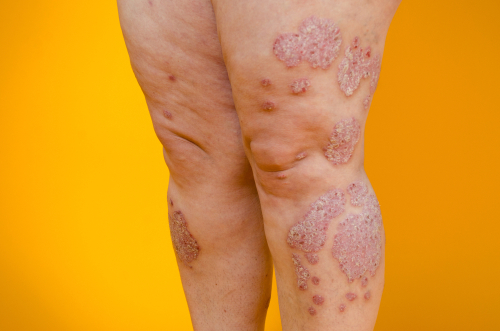Inhibition of Fatty Acid Binding Protein 5 (FABP5) demonstrates activity in psoriasis, according to research presented at the 34thAnnual International Cannabinoid Research Society (ICRS) Symposium in Salamanca, Spain.
FABP5 was first identified in psoriatic lesions, and there is evidence to suggest that upregulation of FABP5 contributes to the pathology of psoriasis. Artelo’s ART26.12 is a potent and selective inhibitor of FABP5 being developed as a novel, peripherally acting, non-opioid, non-steroidal analgesic, with an initial clinical study planned for chemotherapy-induced peripheral neuropathy (CIPN).
In a presentation titled “A Novel Fatty Acid-binding Protein 5 Inhibitor Shows Efficacy in Preclinical Models of Psoriasis,” George Warren, PhD, Principal Scientist at Artelo, says, “We are pleased to share novel data showing that our lead FABP5 inhibitor, ART26.12, demonstrated compelling data in preclinical models of psoriasis.”
In this study, ART26.12 reduced the severity of histopathological markers of skin damage and reduced markers of oxidative stress, chemokines, cytokines, and keratinocyte proliferation, and increased antimicrobial peptides. Results were obtained using a standard imiquimod mouse model, which demonstrated ART26.12 had similar levels of activity as (deucravacitinib (Sotyktu, BMS), an oral tyrosine kinase 2 inhibitor approved by the U.S. Food and Drug Administration in 2022 to treat psoriasis.
Inhibition of FABP5 also showed activity in cancer and anxiety disorders in other research presented at ICRS.


